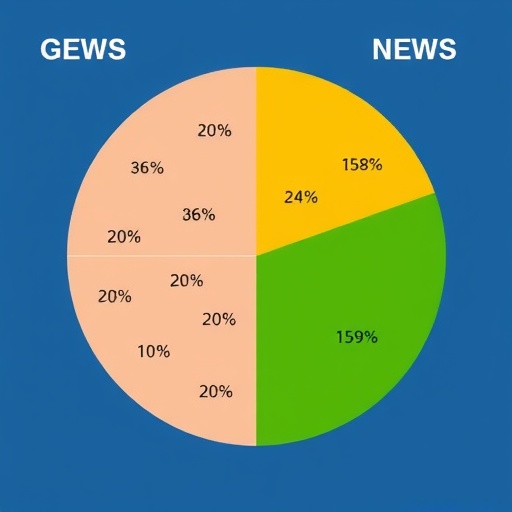In the ever-evolving field of medical science, the early detection of clinical deterioration in patients—especially the frail elderly—remains a critical challenge. Recent advancements have led to the development and validation of new assessment tools designed specifically for this population. Among these, the Geriatric Early Warning Score (GEWS) has emerged as a focal point of research, contrasting its effectiveness against the established National Early Warning Score (NEWS). This longitudinal study, led by a team of researchers including Baeyens, Haegdorens, and Martens, aims to ascertain the predictive accuracy of these tools in real-world clinical settings.
The impetus for establishing the GEWS arose from the recognition that conventional scoring systems, including NEWS, often inadequately account for the unique physiological responses exhibited by older adults. Frail patients frequently present with atypical symptoms that could be overlooked by generalized scoring systems. Thus, GEWS is tailored to capture the subtle yet significant changes in health status that could signify impending complications.
In their comprehensive study, the researchers conducted a comparative analysis involving a substantial cohort of frail elderly patients. The goal was to evaluate the sensitivity and specificity of both GEWS and NEWS in predicting clinical deterioration. As they delved deeper into the complexities of data collection, hospital environments and patient histories became pivotal to establishing an effective research framework.
One of the most striking findings of the study was the superior ability of the GEWS to identify early signs of clinical deterioration when juxtaposed with NEWS. The initial results revealed that GEWS identified at-risk patients with heightened accuracy, thanks to its innovative parameters tailored for geriatric patients. This leap in predictive precision could ultimately translate into timely clinical interventions, potentially saving lives and mitigating severe health complications.
Further enhancing the significance of GEWS, the researchers employed rigorous statistical analyses to ascertain its reliability across various age groups and comorbidity patterns. The diversity of the study population allowed for a comprehensive evaluation of how different health profiles might influence the predictive capacity of both the GEWS and NEWS. The results revealed that GEWS distinguished itself as a more nuanced tool for predicting deterioration in a population vulnerable to diverse health risks.
The implications of these discoveries extend beyond mere theoretical understanding; they have real-world applications that could revolutionize geriatric care protocols. With hospitals inundated by growing numbers of elderly patients, efficient triage systems become increasingly vital. The adoption of GEWS in clinical practices could streamline decision-making processes, optimize resource allocation, and enhance patient outcomes within emergency and inpatient settings.
Moreover, stakeholder discussions surrounding the integration of GEWS into existing clinical pathways raise compelling points about training healthcare professionals. Effective implementation requires a multifaceted educational approach to ensure that staff are adept at interpreting GEWS scores accurately. Consequently, this could foster a culture of proactive care, wherein healthcare practitioners are equipped to respond promptly as clinical signs emerge.
While these findings lay a promising foundation, researchers acknowledge that ongoing validation of GEWS across diverse healthcare settings remains crucial. Future studies are warranted to explore the tool’s efficacy in non-hospital environments, such as long-term care facilities or outpatient settings. By understanding how GEWS performs under varying conditions, researchers can refine its parameters and enhance its applicability across the spectrum of geriatric care.
In addition to facilitating timely interventions, GEWS also holds the potential for advancing research into advanced geriatric medicine. Identifying patterns underlying clinical deterioration can fuel further investigations into the etiology of various health crises among elderly populations. This could lead to the discovery of novel preventative measures and treatment modalities that cater specifically to the fragility often observed in older patients.
As the healthcare landscape shifts towards an increasingly data-driven model, the tools we utilize to monitor patient health must evolve in parallel. The researchers assert that the integration of machine learning and artificial intelligence into patient monitoring systems could enhance the applicability and accuracy of scoring systems like GEWS. Such innovations would ultimately aim to reduce the burden on healthcare providers while simultaneously improving patient care outcomes.
Reflecting on the ethical dimensions surrounding patient monitoring in emergency settings, the researchers highlight the importance of balancing proactive care with patient autonomy. As healthcare systems embrace technological advancements, the dialogue around consent and patient engagement must also grow. This ensures that vulnerable populations have their dignity maintained while receiving the best possible care.
In conclusion, the findings herald an exciting chapter in geriatric medicine, poised to reshape how clinical deterioration is monitored and managed. The introduction of instruments like GEWS represents an essential step toward more personalized and effective healthcare for frail elderly patients. As further research unfolds, both tools will undoubtedly continue to evolve, highlighting the importance of continual innovation in the pursuit of optimal patient outcomes.
The pursuit of excellence in geriatric care hinges on understanding the intricate dynamics that underpin health deterioration. Through such insightful studies as this, the medical community inches closer to achieving a healthcare system that is not only reactionary but also anticipatory—a system that fundamentally values the health and well-being of its most vulnerable members.
Subject of Research: The performance of a geriatric early warning score (GEWS) in predicting clinical deterioration in frail older patients versus the national early warning score (NEWS).
Article Title: Validation and performance of a geriatric early warning score (GEWS) versus the national early warning score (NEWS) in predicting clinical deterioration in frail older patients.
Article References: Baeyens, H., Haegdorens, F., Martens, S. et al. Validation and performance of a geriatric early warning score (GEWS) versus the national early warning score (NEWS) in predicting clinical deterioration in frail older patients. Eur Geriatr Med (2025). https://doi.org/10.1007/s41999-025-01316-7
Image Credits: AI Generated
DOI: https://doi.org/10.1007/s41999-025-01316-7
Keywords: Geriatric Early Warning Score, Clinical Deterioration, Frail Elderly Patients, National Early Warning Score, Predictive Accuracy, Healthcare Innovation.




